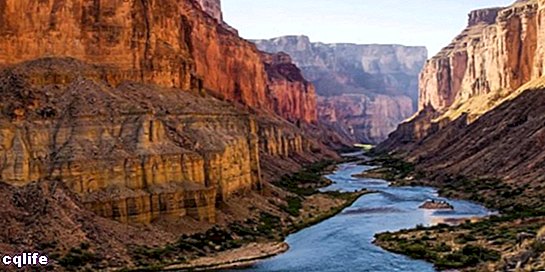- What is geochemistry?
- Origin of geochemistry
- Object of study of geochemistry
- Research areas
- Geochemistry Applications
We explain what geochemistry is, its origin, object of study and areas of research. Also, industrial and scientific applications.

What is geochemistry?
Geochemistry is the science that studies the geological mechanisms of Earth crust and the ocean floor from the tools and points of view of the chemistry and of the geology.
Although strictly speaking it is a specialization of Earth Sciences, its knowledge does not only apply to our planet, but can be extrapolated to other celestial bodies. Thus, he can devote himself to studying both the origin of planets, as well as the internal composition of ours.
Geochemistry is one of the natural Sciences that has grown and expanded its fields of interest, since the middle of the 20th century, hand in hand with new astronomical, geological, chemical and physical knowledge. It was also driven by the breakneck advance of the industry and the technology.
Your cooperation with these areas of knowledge, as well as with the geography, the biology, the hydrography and various applied sciences, has allowed the discovery of new possible materials and a deeper understanding of the cycles of origin and transformation of the matter.
Origin of geochemistry
Geochemistry as an independent discipline came into formal existence in the 19th century, and its interests were simply part of the field of geology. This is partly due to the historically low contact between chemists and geologists, at least until the systematic study of rocks and their substrates began around 1840.
It was only then that the Swiss-German chemist Christian Friedrich Schönbein (1799-1868) coined the term "geochemistry," although it would not come into use until much later. Meanwhile, the new discipline, the fruit of cooperation between geologists and chemists, was simply called "chemical geology."
The antecedents of geochemistry can be traced back to ancient times, since the composition of the stones and crystals found underground always intrigued the human being, even in times when he could only dream of their properties and attribute magical powers to them.
The first proper treatise on geochemistry in history was the work of the Russian geographer Mikhail Lomonosov (1711-1765). Although the name of the discipline did not yet exist, as we have just explained, this study was already dedicated to the composition of the terrestrial layers and the transit of minerals from the subsoil to the surface.
Finally, the interest of scholars in the composition of the meteorites found on our planet, after the middle of the 19th century and at the beginning of the 20th century, gave an important boost to this still young discipline.
Object of study of geochemistry
The object of study of geochemistry can be defined as those dynamics of the chemical elements that constitute our planet, among which are its abundance, distribution and also migration from one terrestrial sector to another, based on the evidence that this leaves in the transformation of the rocks that make up the earth's crust.
Modern approaches to this discipline also study the geological dynamics resulting from the living creatures in the planet. In addition, they extrapolate geochemical knowledge to other planets and stars, to obtain useful conclusions regarding the rest of the universe.
Research areas

Geochemistry encompasses research areas such as the following:
- Biogeochemistry, which studies the effects of life on non-living matter from the earth.
- Cosmochemistry, which studies the distribution, composition and origin of the chemical elements in the outer space.
- Aqueous geochemistry, which studies the dynamics of matter exchange and reciprocal modification of terrestrial elements and hydrographic basins: lakes, rivers, seas, etc.
- Isotope geochemistry, which studies the presence and concentration of different isotopes (that is, versions of the same atom) of chemical elements on our planet.
- Photogeochemistry, which studies the incidence of light in the different chemical circuits of terrestrial matter.
- Environmental geochemistry, which studies the dynamics of pollution of the different environmental environments and the possible mechanisms to reverse it.
Geochemistry Applications
Geochemistry has a very diverse field of applications, the first and foremost being that of chemical exploitation, industry and the transformation of materials.
The knowledge Regarding the abundance and location of various chemical materials in the earth's crust, it is essential to extract and process them, thus obtaining new materials with which to manufacture implements, tools or develop technologies. In post-industrial times, geochemistry has become an indispensable discipline for the economy of many countries dedicated to mining or the steel industry, for example.
Other possible applications of geochemistry are:
- Environmental defense and the fight against pollution.
- The study of the stars and the search for life outside the Earth.
- The study of the dynamics between living beings and inanimate matter, to obtain new elements by biological means.
- The study of the geological dynamics of the planet, in order to gather information about its geological and chemical past.
